#Foundations Books
Explore tagged Tumblr posts
Text
SILENCERS, A Young Dystopian novel by Award-Winning author, Jenna Greene

View On WordPress
#CreativeEdgePublicity#Foundations Books#Jenna Greene#Reborn#Renew#Restore#Silencers#The Reborn Marks Series#Young dystopian novel
0 notes
Text
fun fact when i was a kid/teen i thought I was gonna go into comic/manga illustration and i realized i still have my weeb sketchbook... from 2013.
wanna take a look?
#man there's a lot of crap crammed in here since it was also the book i used for like#actual foundational arts class in high school#where you learn how to research reference images and do writeups and prep portfolios n all that
1K notes
·
View notes
Text
it's about...longevity? stability? it's about natsume believing he'll be somewhere long enough to plant flowers and see them bloom. it's about him taking touko seriously when she asks him to tell her what flowers he wants to plant. it's about making something with his own hands, building a future with the fujiwaras. it's about him repairing a rundown home for someone else, restoring it because it's beloved to them, because it's the home of someone they love. it's about him seeing touko's joy and thinking about the youkai saying we'd like to look upon her happy face forever. it's about the box garden making him think of the fujiwaras' garden and his parents' garden, about the flowers being both the memory of flowers that bloomed there before, and the flowers that he and the youkai planted earlier that day. it's about him waking up in both worlds with sensei. it's about touko finding the petal in his hair. it's about him feeling how he falls short and the youkai saying, but you have such gentle hands...
#watch this right after the ephemeral ones to die instantly. i assume. i haven't tried it#i feel like so many of the emotional beats that destroy me in this story come down to impermanence#accepting loss and change. finding the beauty in transience. treating every encounter as something precious‚ knowing it's ephemeral#and this chapter is about...also accepting renewal? allowing oneself to think about the possibility of love lasting#allowing oneself to put down roots. nurturing what is there. building foundations. doing it for and with people#god you know what else you shouldn't watch this after if you don't want to keel over dead probably. the childhood home arc#natsume can now think of the memory of sitting with his father looking at his mother's garden#and associate it with warmth instead of pain. because he's no longer afraid of losing it. because of the trust he has built#because he knows he can build something. the people here have made it safe for him and he has and he is and he will#i am crying so hard i should be collecting my tears for water reclamation purposes#natsume's book of friends#natsume yuujinchou#natsuyuu meta#my posts#f
276 notes
·
View notes
Text
I just think they're neat!

#Ah yes#I love not knowing whether I'm going to run into some fucked up animal#an inanimate object that's functions a bit weird#some silly goober who doesn't actually mean any harm#or a nightmare beyond my comprehension that could probably fit in a H.P. Lovecraft book#meme#shitpost#trevor henderson#scp#scp foundation#spookys jumpscare mansion#spooky's jumpscare mansion
172 notes
·
View notes
Text
Writing Foundations: Creating Paragraphs
You can have the best story in the world, but if it’s all in one chunk on the page, you may struggle to find people willing to read it. To break it up, you need to know where and when to create new paragraphs.
Every new paragraph starts with an indent. So, to create a new paragraph, hit the enter key, and then the tab key, which is typically on the left side of the Q and either says TAB or looks like two stacked arrows pointing in separate directions.
So when do you start a new paragraph?
1. Anytime a new character speaks
The most obvious place to break up your paragraph is when a new character is speaking. Take this example.
“Hi John,” said Mary as she walked into the room. John was reading a book, and tucked a bookmark between the pages as she sat next to him. “how was work?” “It was good,” she replied, “but my boss really didn’t like the draft I sent her.” “That’s too bad, I thought it was some of your better work.”
Vs.
“Hi John,” said Mary as she walked into the room. John was reading a book, and tucked a bookmark between the pages as she sat next to him. “How was work?” He asked. “It was good,” she replied, “but my boss really didn’t like the draft I sent her.” “That’s too bad, I thought it was some of your better work.”
See the difference? So you make a new line whenever a new character is speaking. In the case of Mary speaking twice, “It was good…” “but my boss…” we keep that in the same paragraph. Whereas when John speaks after Mary, it becomes its own paragraph.
The only time you may split the same character speaking is if they have a large chunk of dialogue. In that case, you can split their dialogue according to the next rule.
2. Any new idea
This isn’t necessarily a hard rule like the last one is. We have a lot of room to make interesting creative decisions when breaking up description or action. For the most part, though, you’ll want to break up your paragraph whenever there’s a new thought or idea. So:
A thin plastic film coated the room, making the furniture gleam in the sunlight streaming through the windows. On her right sat a couch upholstered in ivy coloured fabric, untouched by time. Anna swept her fingers through her hair, chewing on her lip. She watched Rick out of the corner of her eye, “What are you thinking?” The detective’s expression was completely neutral, though he clutched his pen tightly in one fist. In his other hand was a notebook, three questions written across it in blocky text, 1. Why are all the clocks stopped at 5:32? 2. Where’s the murder weapon? 3. Why did my wife leave me? “Same as the others,” he said, tapping his pen against the last question, “the plastic wrap killer.”
So in this example we go from describing the room, to describing an action Anna is doing, to describing the detective, and then his notes. These are all separate ideas, so we can split them into their own paragraphs.
As well, as long as it’s about the same character or within the same ‘idea’, description can be paired with dialogue. You can see Anna’s dialogue comes after the description of her. You can totally do this, or you can split it into its own paragraph if you’d like. It looks natural where it is because Anna is the subject of the paragraph, and she’s also the one speaking.
In the case of the detective speaking, his action comes between dialogue. Also allowed, since the detective is the subject of that paragraph.
3. Any new location or skip in time
Similar to the last, if the scene starts outside, when they move inside it’s a new paragraph. If they go into a new room, get into a car, etc. Any time they change location, it starts a new paragraph. Same for a skip in time. If you need to go from day to night, new paragraph.
Kayde looked anxiously up at the looming oak doors. The windows were dark, layered in years of dust and grime. It’s now or never, they thought. They pushed through the doors and into the foyer. Kayde seemed to wait there for hours, and by the time someone came to greet them, it was already dark outside.
4. For style/effect
This is one of my favourite parts of writing. Once you nail when you should be splitting your paragraphs, you can start to play with splitting them for effect. I do this quite a lot. Take this example:
She fixed an ugly stare at herself in the mirror, long locks of brown hair hanging in front of her eyes. A pair of sharp scissors gleamed at the edge of the glass, pinched between her fingers. Dania raised the scissors to her hair. Snip. A lock fell towards the sink, the edges rough and imperfect. Snip. Another. She chopped and hacked away at her hair until it was clumped in an unsightly pile over the drain of the sink, her head round and covered in patches where she didn’t quite get close enough to her skin. She was finally free.
While the cutting of her hair could be in the same paragraph, it gives it more drama and effect when it’s split. Any time a character is going through something shocking or emotional, maybe try playing around with the paragraph to see if you can add some additional drama to it.
Paragraphs can be as long or short as you’d like them to be, as long as you have intention behind it!
#writing#creative writing#writers#screenwriting#writing community#writing inspiration#filmmaking#books#film#writing advice#writing foundations#writing foundations: creating paragraphs#formatting paragraphs#paragraphs
576 notes
·
View notes
Text
Azula would have lost the Final Agni Kai no matter what. Here's why:
Azula is insecure. That's why she takes cheap shots. She did it with Katara, and she did it with Aang in CoD, AND she did it with Iroh striking him with lightning. One could even argue that her behavior in CoD foreshadows some of what happens in the Agni Kai, where in CoD, Katara fights Azula, and Zuko saves her, whereas in the Final Agni Kai, Zuko fights Azula and saves Katara. It's a little mismatch of dynamics.
Azula cheating (constantly), is a staple of dishonorable behavior, which I think is interesting.
We see her "play with her food" like a cat, with the Dai Lee and other opponents she encounters. She tricks them and manipulates them and there's no threat. Killing Aang with lightning was SUPREMELY stupid on her part, and she wouldn't have done it unless she was cornered. She didn't even stick around to make sure he was dead or have any of them followed-- because she was scared. Zuko NEVER flees in fights out of fear. He doubles down like a lunatic and tries to get himself killed instead. Azula is not willing to risk her life, and that's why she's a worse fighter. The insecurity gets to her head and she psychs herself out
Azula has a lot of fire power (lol), but Zuko has the heart and commitment to see actions through to the end. That's why he would have won, had Azula not cheated.
By the end, they were evenly matched in firepower anyway. They did the Raging Line of Flames Competing Colors thing and met in the middle, and stayed there. That's how animation tells us about their ability.
Azula's seat of power in her firebending is spite and fear. She's not even mad, bro.
Zuko's seat of power, at the end, is light and life and love. One is a powder keg that runs out after you blow it up once, and the other is like an oil fire in a parking lot. There's essentially infinite fuel there.
Zuko would have certainly outlasted her. And did, if you think about it. Because she panicked.
Azula's entire persona is a mask, just as Zuko's bravado and pettiness in the first season was a mask. (Funny, that he can only be himself when he's hidden the scar with the blue spirit mask, therefore freeing himself of the shame and the mark that brands him as a villain)
They show us that Azula's mask is not only slipping, but cracking, crumbling in the mirror scene. That's why it's there: to show the audience that all of her running has finally caught up with her.
This world that Azula created has been a sham from the beginning. Castles in the sky to make up for what she lacks: love.
Which is why she would never win against Zuko if they both reached their full potential, as they did during the comet.
#zuko#azula#this is to address some 'zuko is a worse firebender at the end still and never mastered firebending because azula js more powerful than him'#nonesense that we are seeing in the azula stan tumblr rabbit hole#y'all lost the plot fellas#azula is a tragic heroine or whatever in your hc but she's really just a sympathetic villain destined to fail from the beginning#her foundations are shit#she's completely unsustainable and working on borrowed time#and SHE KNOWS IT#because her worth is rooted in the percieved approval of her father#she could never stand alone#azula critical#i wont say it's an anti post because its not#its just analysis and thoughts and if that bothers you get off the internet and read a book thanks#atla#AT:LA#avatar the last airbender
148 notes
·
View notes
Text


#project 2025#trump#climate change#ice#military#kamala harris#fda#scotus#heritage foundation#ustexas#conservatives#liberals#maga#democrats#republicans#politics#woc#books#women of color#medicare#twitter#Star wars#Paris
386 notes
·
View notes
Text
And remember kids, the next time someone tells you, "George R. R. Martin wouldn't make Jon Snow the typical fantasy hero because that's cliche".....
Oh yes he would!
One viewer wants to know what character would you play (on the show)? GRRM: If I could magically clap my hands and become a different person, it would be cool to play Jon Snow who's much more of the classic hero. Everybody wants to be the classic hero! ABC Interview, 2014
GRRM: And the character I’d want to be? Well who wouldn’t want to be Jon Snow — the brooding, Byronic, romantic hero whom all the girls love. Meduza Interview, 2017
In fact he already has ☺️
#asoiaf#jon snow#yes grrm has criticized neo-tolkein fantasy - a lot!#but like....dpmo#I need so many people in this godforsaken fandom to familiarize themselves with grrm's engagement with the genre#he isn't trying to say “chosen one boy protagonist bad” where tf did people get that???#he's directly trying to challenge the more unsatisfactory elements of lesser copies of tolkien's legendarium#the ones that lift lotr wholesale without actually understanding what makes tolkien's writing snap#at the same time he has admitted himself that he has borrowed from lotr albeit with his own twists#but people in this fandom need to know that ye old man LOVES sword-and-sorcery fantasy#he LOVES a good epic#he LOVES pulp fantasy and sci fi#and those inspirations are directly reflected in asoiaf#the way he's named arthuriana/lotr/MST and many pulp stories with brooding dark heroes as key inspirations#almost all of which have mcs who fall into the typical fantasy hero role#and they inspire elements that are reflected back onto jon more than anyone else in asoiaf#like seoman snowlock = jon (+bran)#frodo - who btw is the mc in lotr not aragorn!! = jon (and bran)#FUCKING KING ARTHUR IS JON SO MUCH SO THAT RLJ IS LITERALLY A 1:1 COPY OF ARTHUR'S BIRTH STORY LIKE??!!!!#anyone who's even a little bit familiar with le morte d'arthur will be like oh yeah jon is literally king arthur like 😭😭#same with anyone who's ready the once and future king - which grrm has directly identified as his fav take on arthurian lit#ntm that jon is based on some of the most prolific characters in arthuriana - percival/galahad/lancelot etc#did you know that there's an iconic sci-fi series whose main character is called Eric JOHN STARK?#well grrm has directly quoted that series and the mc as a foundational book in his life#funny that huh? 🙂#do people even know what tf they're talking about when they say stuff like this???? ajdhhjshsbvshja#grrm engages very heavily with traditional fantasy tropes but he of course provides his own spin on them#never has he said that he's trying to avoid stories with hidden princes or chosen ones as boy protagonists#like someone find me a direct quote of him saying that - but I bet you can't smh
148 notes
·
View notes
Text
hope people realize that it’s impossible to be normal about foundation. you’ve got soaking wet buff lee pace, a man who has two holograms each with their own custom mental trauma, a 20,000 year old genderfluid robot with impeccable taste AND trauma, a daughter who’s older than her mother, and three men who are the same man ruling an empire, one of which btw is lee pace. and he is naked. watch this show.
1K notes
·
View notes
Text





Benedict Cumberbatch´s year in review ✧ 2024.
"This isn’t a very natural thing, you know what I’m doing right now, talking to all of you, but the person in here, that’s carrying this through to try and communicate to you, is someone who’s tied to people that they’ve known for a long time in their life, tied to family, tied to children, tied to things that keep me grounded. I’m not afraid to tackle darkness or difficulty or the less attractive sides of the human condition as long as I know there is space to take that off and put that on, and if I feel safe doing that, then I’m good.” x
#benedict cumberbatch#benedictcumberbatchedit#2024 review#the book of Clarence#elegifs#the end we start from#Eric#The thing with feathers#The roses#Tokyo comic con 2024#letters live 2024#Wimbledon 2024#marvelcastedit#dailymarvelkings#mcuchallenge#userdiana#userrobin#userelysia#tuserlyn#tuserpolly#red sea international film festival 2024#make my money matter campaign#Koko foundation#Climate week NYC 2024#Etc etc lol#Happy new year everybody!!! 🥂🥂🎆
127 notes
·
View notes
Text
INTRODUCING THE HOLMWOOD FOUNDATION THEME
composed by Duncan Muggleton.
This video is now also live on our other social media accounts - if you use any of the following please consider sharing on TikTok, Instagram and Twitter.
#the holmwood foundation#dracula#the holmwood foundation podcast#jonathan harker#mina harker#audio drama#fiction podcast#jeremy larkin#count dracula#maddie townsend#dracula daily#re dracula#dracula sequel#Dracula fiction#Dracula book#bram stoker#gothic literature#gothic horror#vampires
161 notes
·
View notes
Text

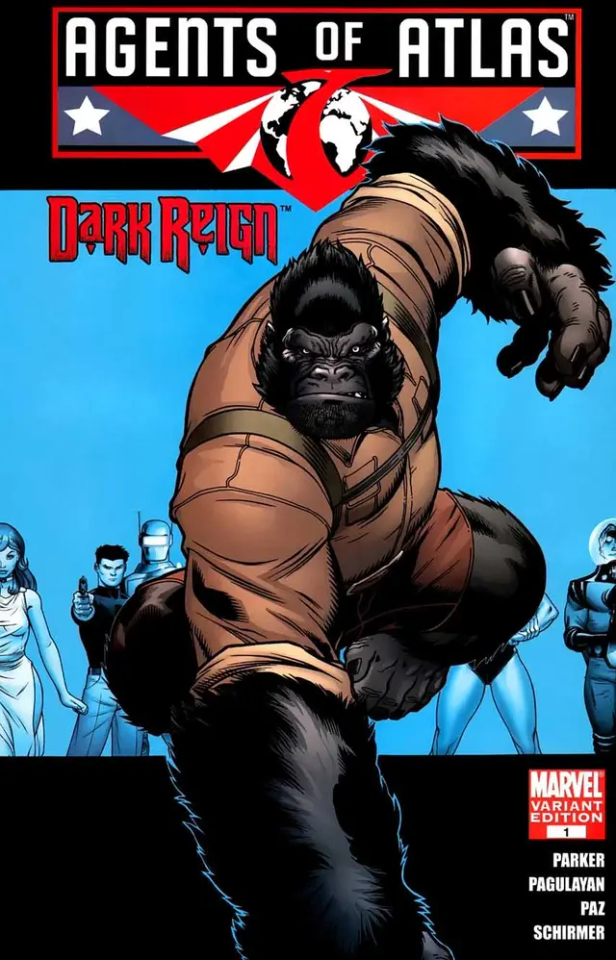

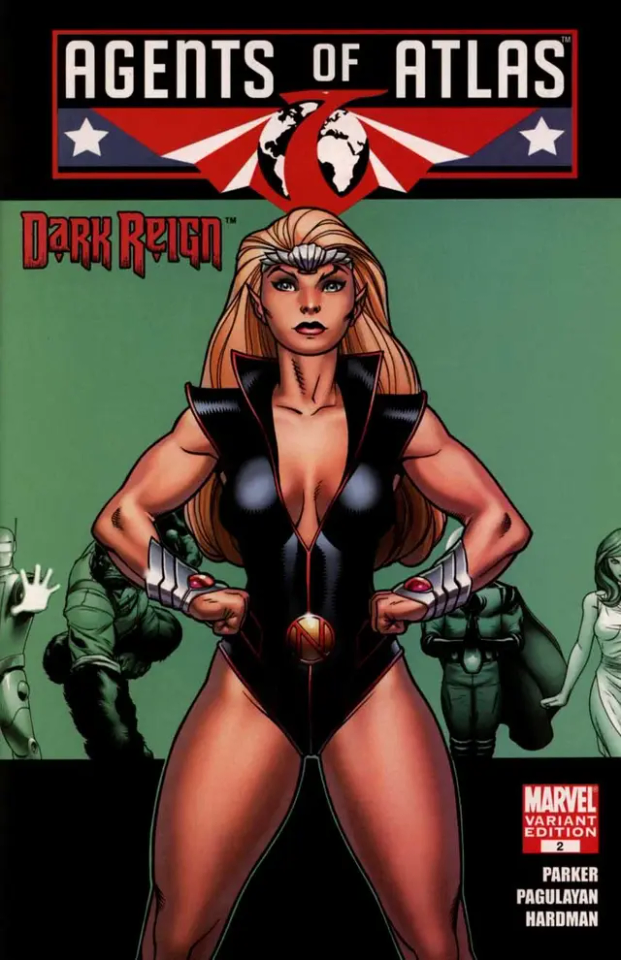

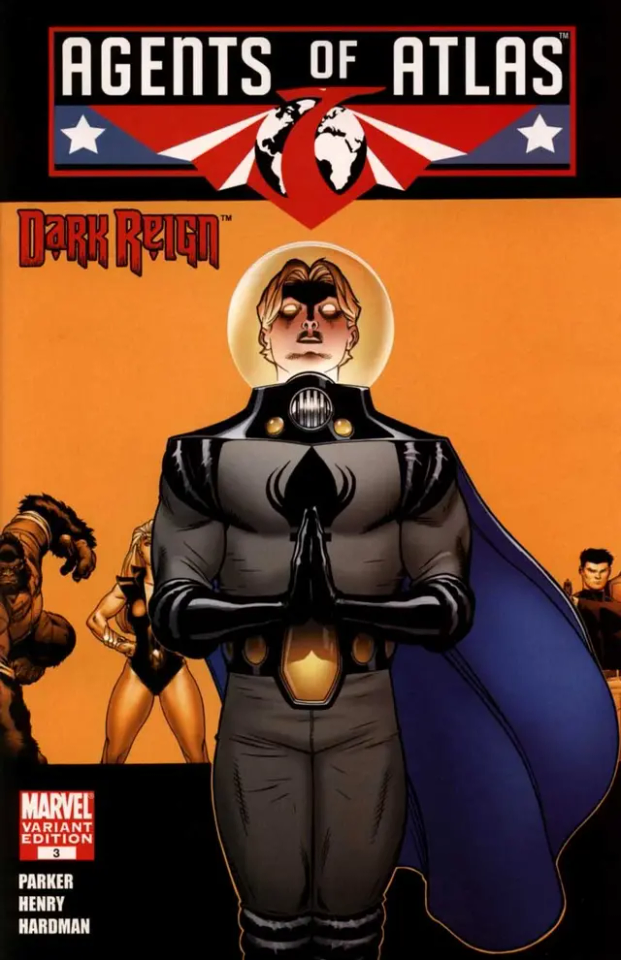

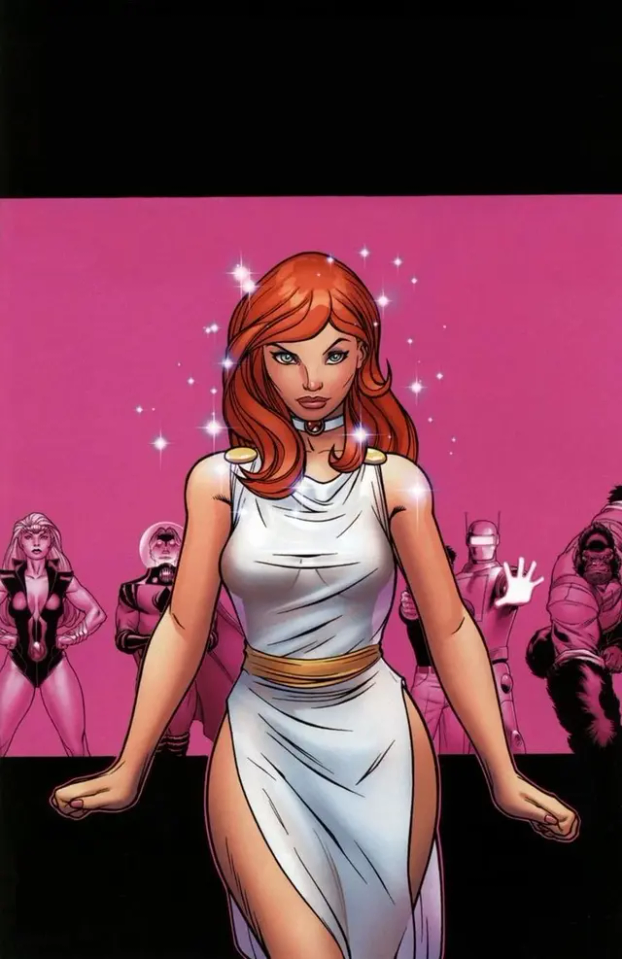
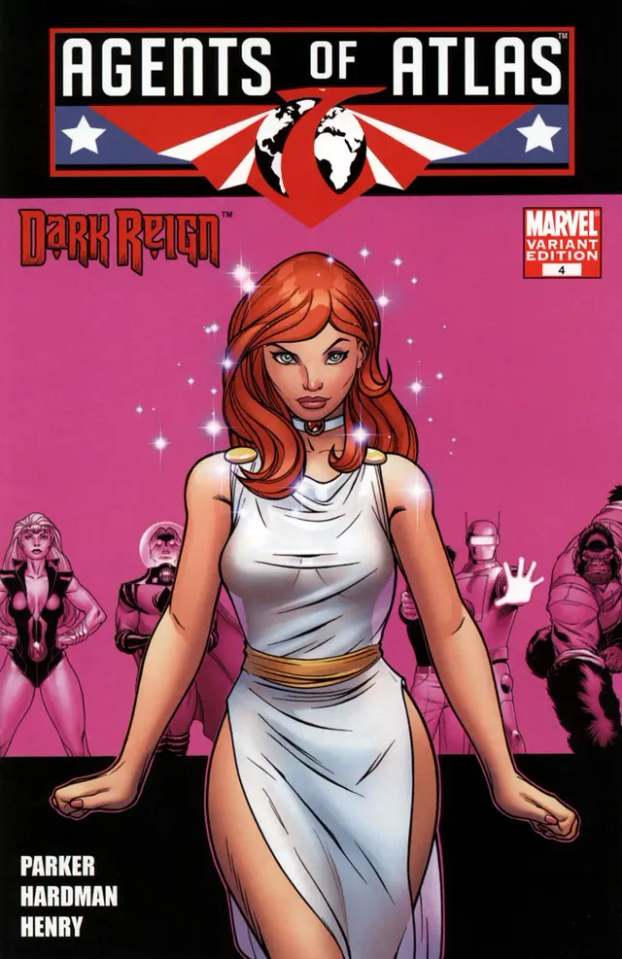



2009's Agents of Atlas Vol.2 #1-5 variant covers by Ed McGuinness, Dexter Vines & Justin Ponsor.
#Agents of Atlas#Ed McGuinness#Dark Reign#marvel comics#marvel#comics#art#cool cover art#cool comic art#cover#gorilla man#ken hale#venus#Uranian#Bob Grayson#Namora#Aquaria Neptunia#M-11#human robot#Jimmy Woo#00s#atlas foundation#2000s comics#2000s#Dexter Vines#Justin Ponsor#Jeff Parker#variant covers#comic covers#comic books
54 notes
·
View notes
Text
I keep thinking about Lewis' review of The Hobbit, because he claimed that the main thing contemporary reviewers compared it to was Alice's Adventures in Wonderland. Was fantasy in that poor of a state that Alice was the closest thing they could think of? Comparing that chaotic fever dream to Tolkien's intricately crafted world? Lewis does specify that the comparison is that both books are by an "Oxford professor at play", but they're otherwise so different that putting the two in the same category baffles me.
#books#tolkien#the hobbit#c.s. lewis#alice's adventures in wonderland#(i just reread alice because the nicely-formatted bookbinding pdf made a nice ebook)#(thought i'd give it another chance after seeing how foundational it is (mentioned in so many other works))#i think there's an unbridgable cultural gap somewhere#i can't fathom how anyone can read this and become invested in wonderland as a world#it's so random and so chaotic and everyone's a pun and no one's a character#and yet somehow there are books upon books upon books that try to turn it into a dark fantasy world#it doesn't make sense! it's a world that's not supposed to make sense!#and yet they try to treat the government as legitimate and the queen as a real threat etc.#okay sorry for the digression#but my point is that it's odd that there was nothing else in that seventy-ish year gap for them to compare it to#the only thing coming to mind is peter pan#i suppose george macdonald and e nesbit both had their own brands of popular children's fantasy#maybe the real shocking thing about that comparison#is that i'm so used to seeing it compared to narnia that putting the hobbit in a category with any earlier fantasy work seems weird
119 notes
·
View notes
Note
Myriad looks like Stanford Pines now

You mean that other guy that had a homoerotic field study relationship with a creature often referred to as a reality bending demon, yeah?
#used to be really into gravity falls back in the day. you seen the book of bill?#inbox#scp inbox#dr myriad#scp 963#scp#scp foundation#doodleys
94 notes
·
View notes
Text
hi originally posted this at the end of a long thread of back and forth, here’s the og post if you want full context but i feel like this needs to be its own post especially bc i keep seeing this argument being made—the argument that the kids (in this case it was annabeth) SHOULD just know the monsters are monsters and who they are and how to defeat them before ever encountering them, that it’s a problem if they don’t.
the problem is not if 12 year olds should recognize a trap when they see one, even if they’re smart 12 year olds, and if that’s realistic. that is entirely beside the point.
the problem is rick riordan wrote a book series whose formula is bringing myths to the modern age and he’s not sticking true to that in the show—percy jackson and the olympians’ Shtick is taking these classic, ancient threats and giving them a new face. these traps work because these kids are not walking into a cave marked with Get Out and getting ambushed by monsters—the monsters are disguised as harmless mortal human beings, in harmless mortal human being places (for the most part) and i think we—and more importantly, the show—are all forgetting the mist, the magic involved here. it’s not just that medusa is a “creepy lady with her eyes covered” it’s that there is ancient magic at work here, magic that, like the systems of abuse pjo exists to criticize, has been evolving and continuing its malevolence for millennia. it’s formulaic, that’s the point. it’s the same trap you’ve learned about all your childhood, the same trap a thousand children before you learned all their childhoods, and still, it works. you fall into the trap. because that’s how generational abuse works. it’s a trap. it isn’t enough to learn monsters exist, what they look like from a second hand story that originated thousands of years ago. if you want to escape alive, you have to adapt as quickly as they do, recognize their face, and ultimately, beyond any individual trap, the game itself has to change. real, generational change.
so. the problem is rick riordan wrote a series with a formula for action that perfectly captures the overarching, systemic conflicts he was commentating on, and then threw that formula out in the show because it was “unrealistic”. i don’t give a damn about realism when it works to the detriment of the story. this is a story about generational abuse, yes, but it’s told through ‘a tale as old as time’ and that’s why it works so fucking well. and when it comes to basic storytelling, if your characters know the threat before they even walk in and you do practically nothing to then make up for the stakes you have removed, that’s a flaw. now you’ve lost the entertainment value for your audience, on top of also lessening your themes.
something else that is so. honestly soul-crushing as a writer and a creative, is that to me this is reflective of the way we are now afraid to tell earnest stories. stories where we care not for listening to the people who want to pick apart fictional, mythical, fantasy stories for not being “realistic” instead of aligning with our target audience who acknowledges reality is not what makes a story. think of your favorite movie, show, book, comic, what have you—has the reason for your favoritism ever been because it is the most reasonable, the most grounded, the most practical out of any you’ve seen? or is it because of the emotion? the way it speaks to you, to your life and the person you are? the journey it takes you on? is the percy jackson and the olympians book series so good because it’s inherently realistic?
the secret to storytelling is, very simply, focus on your story. everything else is secondary. if it’s written well, it doesn’t matter to me that the characters walk into a trap that, to the audience, is obviously a trap. because i can understand how the characters don’t know it, and how the story falls apart if the narrative just tells the characters it’s a trap from the jump. that’s what dramatic irony is—first used in greek tragedies! this is literally a tale as old as time in every sense except for the end—where it’s happy. and it’s not earned if we don’t first see, over and over, the status quo as a tragic trap.
it’s not about if annabeth (or the other kids) is “smart enough” to not walk into a trap, or about if she’s just too prideful to not walk into what she knows is a trap (or any reason that could apply to the other characters), it’s that annabeth, at the end of the day, is a character. she is a storytelling tool for the messages of the narrative. that doesn’t make her any lesser. in fact ignoring it reduces her, because it reduces what she represents. it’s about how rick riordan, or whoever else at disney, has fumbled the storytelling bag so ridiculously hard that they can’t take the simple, effective formula outlined from start to finish (by good ol 2009 rick himself) and adapt it to the screen without answering the most unimportant, derailing, anti-story questions.
#one of the ppl who reblogged the og post said whatever happened to suspension of disbelief and i could have kissed them on the mouth#yes exactly#this new age of audiences who praise ‘realism’ over good storytelling i hate u#‘content over cinema’ i hate u.#i’m not even a screenwriter but any writer can tell you#we’re talking foundations of the craft here#and the worst part is rick already succeeded in the books#if it ain’t broke don’t fix it#where along this path did he lose sight of everything he set out to say?#anyways this is its own post now go forth and do with it what u will#pjo#percy jackson#pjo show crit#percy jackson and the olympians#pjo tv show#percy jackson tv show#annabeth chase#ris raves
362 notes
·
View notes
Text
Nobody read The Hunger Games and thought, “I need to read more books about a teenage girl who fights with a bow and arrow and eventually wears a pin with a bird on it.” Nobody even came away craving more teen death sports. What many people who loved that book wanted — myself very much included — was more of that feeling we got from it.
Where do genres come from? (My latest newsletter)
#quotes#writing#books#fantasy#bookworm#lgbtqia#the hunger games#hunger games#lord of the rings#neuromancer#dune#foundation#epic fantasy#cyberpunk#genres
65 notes
·
View notes